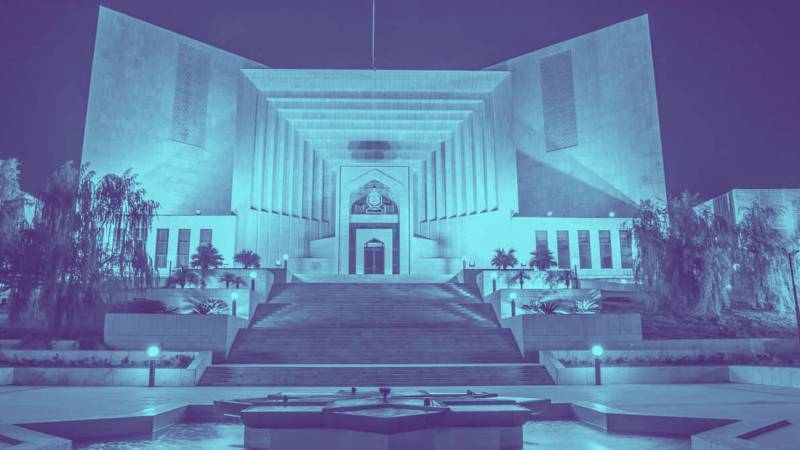
The Supreme Court of Pakistan has set up a sub-committee for Khyber Pakhtunkhwa (KP) to visit prisons across the province and submit a package of draft reforms.
This was decided during a meeting for judicial reforms at the Peshawar Registry of the Supreme Court on Friday, which Chief Justice of Pakistan Yahya Afridi headed. The meeting was attended by Peshawar High Court (PHC) Chief Justice Ishtiaq Ibrahim, PHC Administrative/Monitoring Judge for Prisons Justice Ijaz Anwar Khan, Justice (Retired) Qalandar Ali Khan, Khyber Pakhtunkhwa Advocate General Shah Faisal Utmankhel, KP Home and Tribal Affairs Department Additional Chief Secretary Muhammad Abid Majeed, KP Inspector General Police Akhtar Hayat Khan; KP Inspector General Prisons Muhammad Usman, registrars of the Supreme Court of Pakistan and PHC, and Law and Justice Commission of Pakistan (LJCP) Secretary Riffat Inam Butt. Others who also attended the meeting included social worker and activist Ayesha Bano, along with members representing the provincial government and opposition, including Amjad Ali, Fazal Shakoor Khan, and Ahmad Karim Kundi.
The meeting decided to set up a sub-committee for Khyber Pakhtunkhwa province, which shall visit different prisons in the province and submit a package of draft reforms.
This sub-committee will comprise Justice Ijaz Anwar Khan - who will be the convener of the committee, and include as members Justice (retired) Qalandar Ali Khan, Fazal Shakoor Khan, Ahmad Karim Kundi, Amjad Ali, representatives of the IG Prisons and LJCP, and Ayesha Bano - coordinator.
The sub-committee will provide recommendations on the issues of Under-Trial Prisoners enhancing rehabilitative programmes within prisons, including vocational training, mental health support, and educational initiatives, to prepare inmates for reintegration into society. These inputs will contribute significantly to formulating a National Jail Reform Policy, ensuring that the policy reflects the feedback and priorities of all provinces.
Earlier, at the outset of the meeting, participants offered fateha for bus passengers in Kurram who fell victim to terrorism.
Chief Justice Afridi lauded the role of PHC in releasing 1,289 prisoners involved in petty crime. He also praised the role of the Khyber Pakhtunkhwa police and their bravery in repulsing terror attacks and defending citizens. He also emphasised the importance of upgrading forensic science facilities in the province to support efficient and
evidence-based criminal investigations.
The proposed National Jail Reform Policy aspires to establish a transparent, equitable, and rehabilitative framework that aligns with constitutional obligations and international standards. This collaborative effort represents a transformative step toward creating a more effective and humane criminal justice system in Pakistan.
In this regard, regular interaction of stakeholders and the leadership of Chief Justice Afridi underscores the importance of judicial reforms as a key focus area of the Supreme Court aimed at addressing longstanding inefficiencies in the correctional system.

